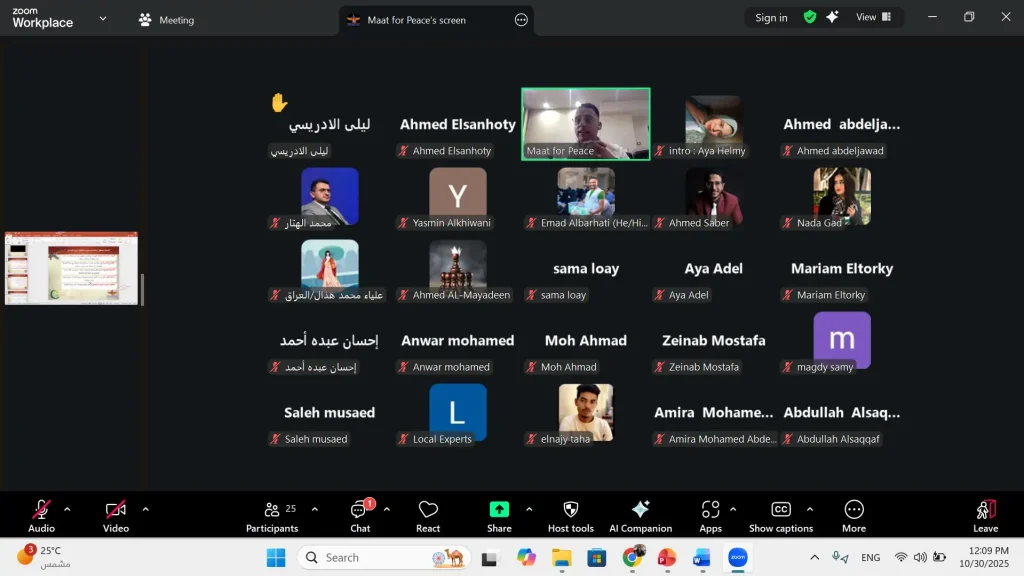Sewage water is killing crops in the New Valley
Maat calls for the completion of sanitation projects in the New Valley, to preserve the interests of small farmersN
In light of the results of the first universal periodic review convoy conducted by the Maat Foundation for Peace, Development and Human Rights for the New Valley Governorate last May, the Foundation monitored the suffering of New Valley farmers from a problem related to the extension of sewage lines inside agricultural lands, which results in the destruction of crops and the wasting of agricultural lands .
According to the information available to Maat Foundation, and based on discussions with a large number of farmers and officials in the governorate, the problem of extending sewage lines inside agricultural lands is summarized in the following points: -
- The governorate is exposed annually, with the entry of winter, to about 15 million cubic meters of water inside the drainage ponds, which exposes the bridges of the ponds to the risk of collapse and exposes agricultural lands to drowning.
- The high level of sewage water above the level of the bridges of the sewage ponds occurs frequently due to the delay of the responsible companies of the National Authority for Drinking Water and Sewerage in completing the new sewage station in the East Kharga region, to absorb all the quantities of wastewater for the entire city of Kharga and not to open the special gates that drain this water To the arboreal forest.
- The collapse of one of the main sewage pond bridges in the city of Kharga in January 2016 led to the sinking of an estimated 180 acres owned by small farmers in the Ain Hamid area, well No. 21 “east of Kharga city”.
- Sewage water leakage into agricultural lands causes pollution and increases the level of salinity in it, and thus leads to the fizziness of agricultural lands and the inability to cultivate them.
All these problems together lead to the creation of obstacles in the way of enabling farmers to secure sustainable sources of income, especially since agriculture represents economic activity and their main source of livelihood, which contradicts a number of recommendations accepted by the Egyptian state during the second session of the UPR in March 2015, which Among the most important of them were:
1- Recommendation No. 166-263, submitted by Thailand, which states: “Ensure the participation of all stakeholders, especially women, youth and vulnerable groups, in the economic development of the country with a view to achieving long-term economic growth that does not exclude anyone and ensuring the well-being of all”;
2- Recommendation No. 166-268, submitted by the Kingdom of Bhutan, which states: “To continue its efforts aimed at reducing poverty and, in particular, to focus more on programs to combat poverty in rural areas”;
3- Recommendation No. 166-271, submitted by the Republic of Mali, which states: “Continue and strengthen measures to improve the living conditions of its population”.
4- Recommendation No. 166-273, submitted by the Maldives, which states: “Take practical measures to ensure access to safe drinking water and sanitation services for all, especially for people in rural areas”.
In light of this, Maat Foundation appeals to the government to complete the stalled sanitation projects in the governorate, especially the sewage plant outside Kharga, to absorb the wastewater that harms small farmers, and also appeals to the Ministry of Agriculture to study the effect of this water on the lands in the New Valley and to provide the necessary support to farmers to get rid Of the negative effects resulting from these situations.
shortlink: https://maatpeace.org/en/?p=14388











